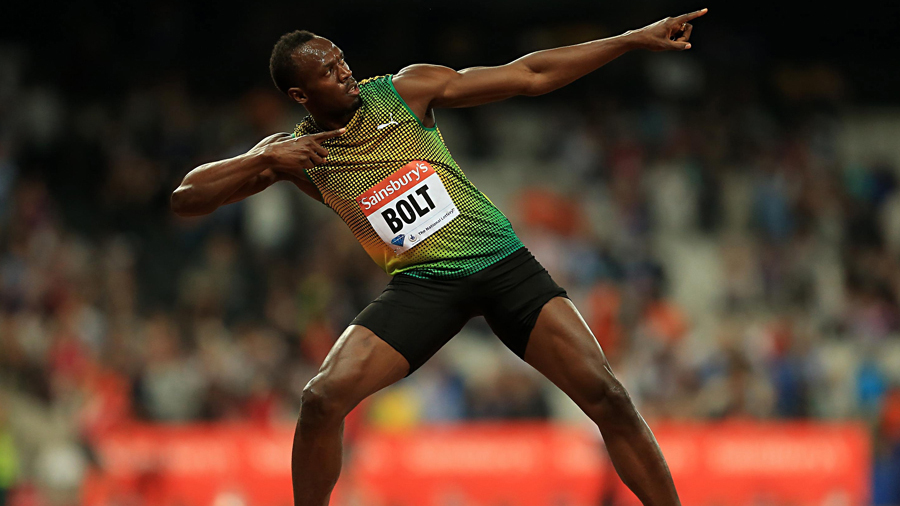Overcoming Adversity: Olympians Who Have Battled Health Problems and Won
January 12, 2016
 357
357 
Olympic athletes often endure rigorous training for much of their lives in a bid for a spot on the podium. We view these individuals as the epitome of health and the height of physical performance, pushing the boundaries well past what we thought was humanly possible. What we don’t see, however, is that behind the scenes some of these star athletes suffer from potentially career-ending health problems. Faced with even more challenges, these medal-winning Olympians overcame adversity and their life-altering conditions . . . and ultimately inspire individuals – young and old – around the world.
As the 2012 games near the closing ceremonies, let’s take a look at some of those heart-warming success stories.The Sound of Success
Going through life with hearing loss can be hard enough as it is, but can you imagine what it would be like to be an elite athlete without the ability to hear? Our 2012 U.S. team has three such inspirations. David Smith, a 27-year-old Olympian volleyball player, was born with close to 90 percent hearing loss. Because he is almost entirely deaf, teammates are unable to call on Smith during plays, and he relies on lip reading for communication.
Tamika Catchings, who has already won two Olympic gold medals, was also born with extensive hearing loss in both ears. Working on her third gold medal, the basketball player wears heavy duty hearing aids during games but refuses to wear them during her everyday life.
Chris Colwill is another hearing-impaired Olympian. Having won eight national diving championships so far, Colwill set out for the gold this year in London despite suffering from 60 percent hearing loss. Since he can’t wear his hearing aids before dives, Colwill must keep a close eye on the scoreboard to determine when it’s his turn to take to the board.
Cancer Can’t Stop These Guys
Some Olympians have had to experience more ghastly health problems, like testicular cancer. At the young age of 24, Eric Shanteau was diagnosed with testicular cancer just a week before the Olympic Trials for the 2008 Beijing Olympics. He postponed treatment until after he participated in Beijing, and still managed to become cancer-free following his surgery, even to this day. In a stunning show of endurance and perseverance, Shanteau returned to the 2012 Olympic Games in London to compete in the men’s 4×100-meter medley relay and 100-meter breaststroke. Endurance and perseverance indeed . . . Shanteau captured a gold medal in the former of the two races.
Another one of the U.S. athletes was also diagnosed with testicular cancer – Jake Gibb, part of the U.S. men’s volleyball team. After being flagged by a drug tester for abnormal hormone levels, doctors discovered that a cancerous tumor was the cause. Gibb’s surgery, like Shanteau’s, was also successful. Without the need for chemotherapy, Jake was able to make the Olympic Games this year and compete alongside longtime partner Sean Rosenthal.
Magic Legs?
Fans of the Paralympics, which usually follow after the Olympics, may recognize an inspiring figure among those competing in the London games this year. South African Oscar Pistorius earned his spot in the Olympics and took on the best runners in the world . . . all without legs. The double amputee was born without either fibula, which is one of the bones that makes up the calf. He had both legs removed before the age of one.
Known by many as “Blade Runner” because his prosthetic legs resemble blades, Pistorius is popular among viewers of the Paralympics. He’s attempted to participate in the Olympics before, but was disqualified because his “blades” were thought to give him an unfair competitive advantage against able-bodied athletes. After the ruling was overturned by the Court of Arbitration for Sport, Pistorius was able to compete in this year’s Olympics. Unfortunately, Pistorius has not yet medaled, but the fact that a double amputee was even able to compete alongside perfectly intact Olympians will motivate many disabled athletes for years to come.
Cited Sources
“Olympians Who Overcame Health Problems.” HuffingtonPost.com. The Huffington Post, 2 Aug. 2012. Web. 7 Aug. 2012. <https://www.huffingtonpost.com/2012/08/02/olympians-health-problems_n_1730452.html#slide=1318145>.
Cecil, Nicholas. “Interest in ‘Blade Runner’ Oscar Pistorius Pushes Up London 2012 Paralympic Ticket Sales.” Independent.co.uk. The Independent, 7 Aug. 2012. Web. 7 Aug. 2012. <https://www.independent.co.uk/sport/olympics/paralympics/interest-in-blade-runner-oscar-pistorius-pushes-up-london-2012-paralympic-ticket-sales-8015168.html>.
Borden, Sam. “Pistorius Misses Chance at Final, but Remains Upbeat.” NYTimes.com. The New York Times, 5 Aug. 2012. Web. 7 Aug. 2012. <https://www.nytimes.com/2012/08/06/sports/olympics/pistorius-eliminated-track-and-field-roundup.html?pagewanted=all>.
“Olympic Athletes with Hearing Loss.” Gnresoundblog.com. The Official ReSound Blog, 3 Aug. 2012. Web. 7 Aug. 2012. <https://gnresoundblog.com/2012/08/03/olympic-athletes/>.


In recent years, seed milks have gained popularity as a nutritious and eco-friendly alternative to dairy and other plant-based milks. Marketed as a healthy option, these beverages are often touted for their rich nutrient profiles and sustainability. However, a closer look reveals that not all seed milks are created equal. Many contain hidden ingredients and […]


NOTICE TO THE PUBLIC! A vast array of products seen in American grocery stores are notably absent on European shelves. This is not due to a lack of international trade but rather stringent food safety regulations in the European Union. Many popular American foods are banned in Europe due to concerns about health risks and […]


Did you know that there lurks an invisible ingredient in meat that has been raising health concerns —It is called meat glue- scientifically known as transglutaminase? Transglutaminase is an enzyme used to bind pieces of meat together to create larger, more uniform cuts that creates a seamless appearance. According to the American Meat Institute, it […]